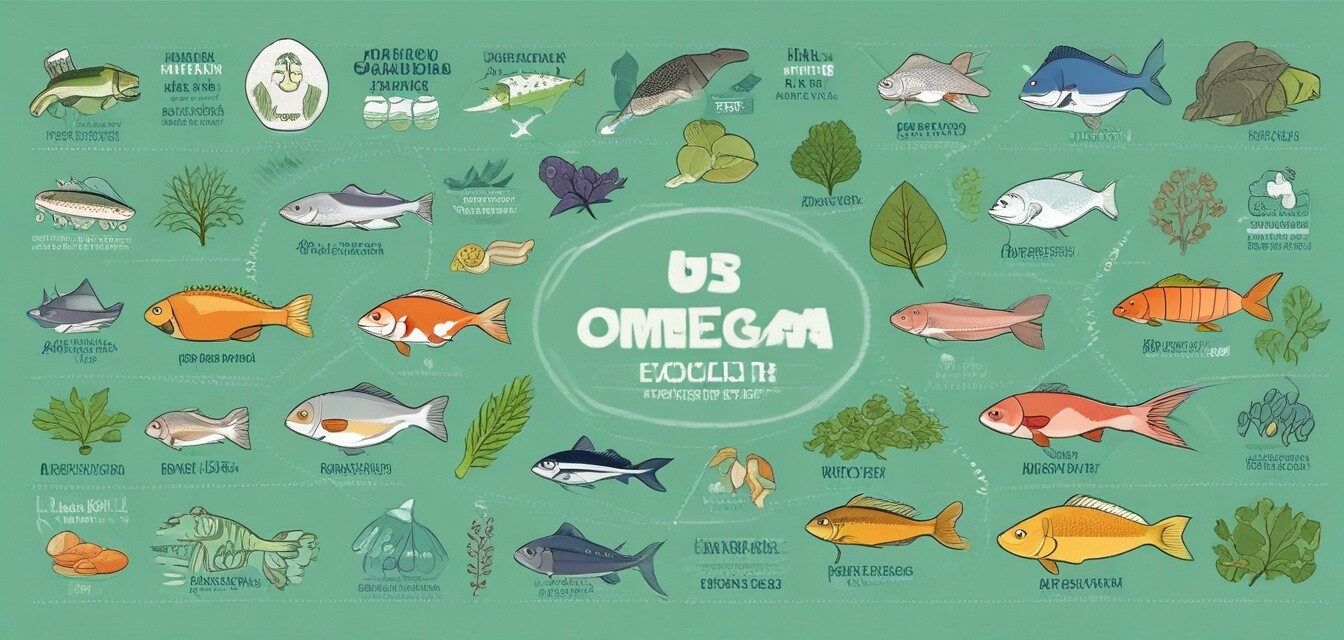
Understanding the Environmental Impact of Omega-3 Sources
- Omega-3 fatty acids are essential for health and can come from various sources, each with distinct sustainability ratings.
- Fish sources may lead to overfishing and habitat destruction if not sourced sustainably.
- Algal and plant-based omega-3 sources are often more sustainable alternatives with less environmental impact.
- Understanding the sourcing of omega-3 supplements is crucial for making eco-friendly choices.
Omega-3 fatty acids are known for their health benefits, but the sources of these essential nutrients can vary widely in terms of sustainability. As consumers become more conscious of their environmental footprint, it’s vital to understand how different omega-3 sources impact our planet. This article will take a deep dive into the environmental implications of various omega-3 sources, examining their sustainability and offering tips on choosing the best options.
The Importance of Omega-3 Fatty Acids
Omega-3 fatty acids are critical for various bodily functions, including heart health, brain function, and reducing inflammation. They are found predominantly in three main sources:
- Fish: Rich in EPA and DHA, found in fats of fish like salmon and sardines.
- Algae: A plant-based source, offering EPA and DHA, suitable for vegans.
- Plant-based oils: Such as flaxseed oil, providing ALA, which the body converts to omega-3.
Omega-3 Sources Compared
| Source | Type | Sustainability Rating | Environmental Impact |
|---|---|---|---|
| Fish | Animal | Varies (often low) | Overfishing, habitat destruction |
| Algae | Plant | High | Minimal impact |
| Flaxseed | Plant | High | Minimal impact, requires less water |
The Environmental Challenges of Fish-Sourced Omega-3
Fish are a traditional source of omega-3 fatty acids, but the environmental challenges associated with fishing practices cannot be overlooked. Overfishing has led to depleted fish populations, and destructive fishing methods can harm marine ecosystems.
Pros of Fish-Sourced Omega-3
- High in EPA and DHA.
- Well-absorbed by the body.
Cons of Fish-Sourced Omega-3
- Overfishing concerns.
- Possible contamination with heavy metals.
- Environmental damage due to fishing methods.
Algae: A Sustainable Alternative
Algal oil is derived from algae and provides a sustainable source of omega-3 fatty acids, particularly DHA and EPA. It is produced in controlled environments, reducing the risk of contamination and environmental impact.
Omega XL 120 Capsules
A natural supplement derived from green-lipped mussels, sustainably farmed in New Zealand, providing essential omega-3s without the fishy aftertaste.
Learn MoreBenefits of Algal Oil
- Rich in DHA and EPA, similar to fish oil.
- Free from contaminants found in fish.
- Plant-based option suitable for vegans.
- Sustainable production with minimal environmental impact.
Plant-Based Omega-3 Sources
Plant-based omega-3 sources, such as flaxseed, chia seeds, and walnuts, primarily provide ALA, which the body can convert into EPA and DHA, although at a lesser efficiency. These sources are highly sustainable and beneficial for the environment.
Flaxseed Oil: An Eco-Friendly Option
Vitamatic Triple Strength Omega 3 Fish Oil
Offering a concentrated dose of omega-3 fatty acids, derived from wild-caught fish, purified to ensure safety and sustainability.
Explore NowAdvantages of Plant-Based Omega-3s
- Low environmental impact and resource use.
- Generally free of contaminants.
- Suitable for vegans and vegetarians.
- Promotes biodiversity and sustainable agriculture.
Making Informed Choices for Sustainability
As consumers, making informed choices can drive demand for sustainable omega-3 sources. Look for certifications on products that guarantee ethical sourcing practices. Certifications may include:
- Marine Stewardship Council (MSC)
- Friend of the Sea
- Global Organic Textile Standard (GOTS)
Additionally, consider choosing products from brands that emphasize sustainability in their manufacturing processes and packaging. For more information about ethical sourcing and certifications, refer to our Certifications and Standards.
Conclusion
Navigating the world of omega-3 sources requires understanding their environmental impact. While omega-3 fatty acids are crucial for health, the source matters significantly. By opting for algae-based or plant-based supplements, you can make choices that benefit both your health and the planet. Remember to check the sustainability credentials of the products you choose and support brands committed to responsible practices.

